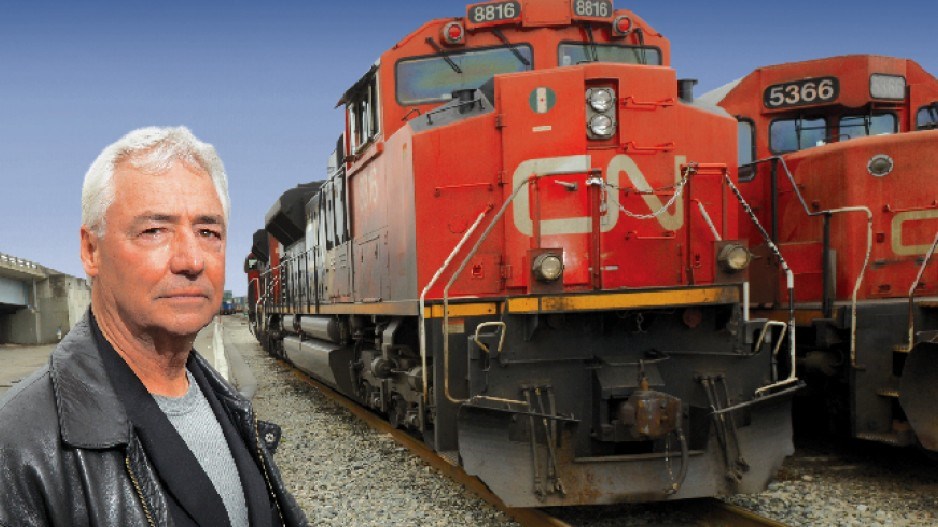A bill to right a power imbalance between shippers and rail companies is receiving mixed reviews.
The Delta-based Western Canadian Shippers’ Coalition (WCSC) is pressing for some amendments – but concedes that, even in its current form, the bill is a win for shippers.
“The fact that [federal Transport Minister Denis Lebel] acknowledged … that there is this imbalance between the shippers and the railways – and that this is Parliament’s attempt to do something about it – has value for us, because it’s been a long time coming,” said Ian May, WCSC chairman.
The draft bill, released in December, is the government’s answer to the federal Rail Freight Service Review, which was launched in 2008 in response to shippers’ concerns about rail service.
The bill’s release triggered backlash from both Canadian National Railway Co.(CN) (TSX:CNR; NYSE:CNI) and Canadian Pacific Railway Ltd.(CP) (TSX:CP; NYSE:CP), which have argued against imposing regulations.
CN president and CEO Claude Mongeau said the federal review has spurred CN to improve service through “a comprehensive series of commercial initiatives that benefit our supply chain partners and the Canadian economy,” including entering level-of-service agreements with customers.
“This is why I am troubled by the decision to introduce legislation that is inconsistent with the facts underscoring improved rail service, as well as the government’s stated agenda of innovation and productivity to foster economic prosperity for Canadians.”
The bill has now passed second reading in the House of Commons and is being reviewed in parliamentary committee meetings with select stakeholders. The committee could recommend amendments before the bill returns before the House. Barring delays, it could be finalized before Parliament breaks for summer.
Local and national shippers are lobbying, at meetings and in the press, for amendments.
A key sticking point, raised recently by the Forest Products Association of Canada and the Mining Association of Canada (MAC), is a lack of clarity around service-level agreements.
The bill gives shippers a statutory right to the agreements but shippers complain that it doesn’t define that service. MAC said in a statement that “without specifying the elements of service that a shipper needs, an arbitrator will have no direction in a process that, unless amended, weighs heavily in the railway’s favour.”
May said B.C. shippers share that concern. He added that his coalition, and shippers across Canada, have reported better service from Canada’s railways since the federal review was launched. But he said that’s at risk unless there are some tweaks to the legislation.
“Since the bill came out and the railways said, ‘Well if it goes through like that, we’re OK, it’s not going to affect us,’ service has dropped back to the level it was prior to the review,” May said.
Peter Xotta, vice-president of planning and operations for Port Metro Vancouver, said CN and CP have “really stepped up their game” since the federal review was launched and have signed a number of service-level agreements with PMV’s terminals.
Xotta added that PMV wants the government to hold off on implementing the legislation for two years while monitoring the situation. He said the port isn’t convinced the legislation is necessary and is concerned regulation will trigger “unintended consequences and challenges.”
“We recognize that some shippers have said, ‘We’re not certain that that change is long-standing or locked in,’ and they’re looking for legislative solutions to ensure that,” Xotta said.
“We’re still on the fence on [legislation]; our preference is a commercial solution.”




